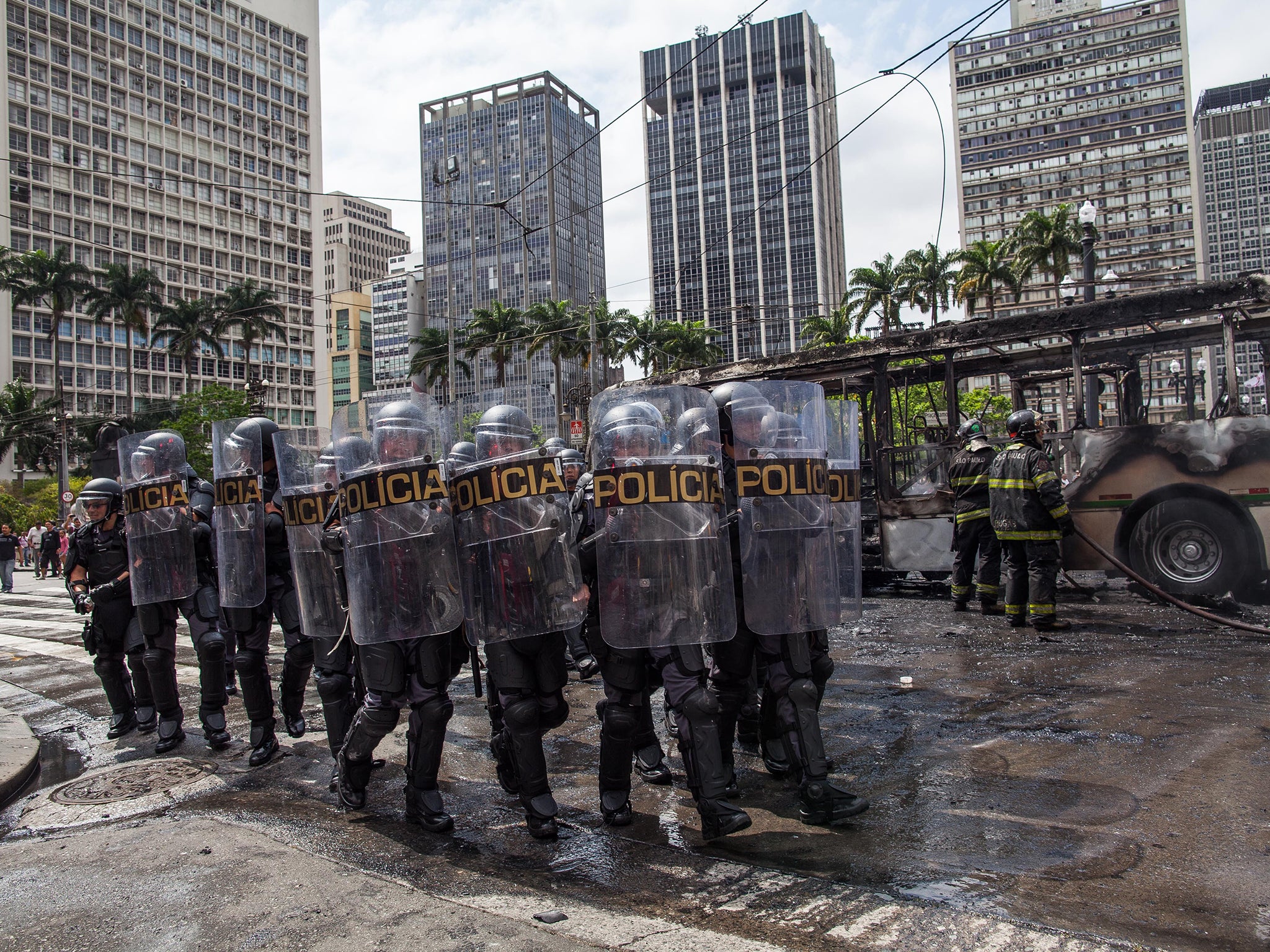Brazilian police accused of abusing lethal force after study finds officers killed 11,000 people in five years
NGO calls for demilitarisation and increased transparency through the creation of a single police hierarchy

Leading NGOs in Brazil have called for the demilitarisation of the country's police forces after finding that officers killed more than 11,000 civilians in the five years to 2013, averaging about six killings a day.
A survey by Brazil's Forum of Public Security (FBSP), found that police killed more civilians in the period than law enforcement officers in US have done in the space of the last 30 years.
In 2013 alone, 2,200 civilians were killed across the country after coming into contact with the Brazilian security services. In the same year, 490 police officers lost their lives, underscoring officers' willingness to use lethal force, and just how dangerous parts of the country can be.
The FBSP emphasised the urgent need to review the standard of performance of Brazil's police forces and accused them of “making abusive use of lethal force to respond to crime and violence”.
Another Brazilian NGO, The Instituto Sou da Paz, has long advocated the demilitarisation of Brazil's police, and increased transparency through the creation of a single police hierarchy instead of the existing division between Brazil's civil and military police.
Under the country's jumbled law enforcement system, the State Civil Police is affiliated to the various state governments, while the Military Police is overseen by the federal authorities. The different corps have their own training, formations and rules, and although the military force is responsible for maintaining public order, its units do not conduct criminal investigations. Critics claim the divisions have led to rivalry instead of cooperation between both bodies, and a lack of accountability on both sides.
Thirty-five new laws covering security were established in 2011, at the beginning of the term of President Dilma Rousseff's last government. But for some analysts the reforms are insufficient.
“These changes do not touch the central issues of police institutions such as the possibility of unification of careers, improvement of external control mechanisms that favour the reduction of lethality or enhancement of police management,” said Carolina Ricardo, a senior analyst from the institute.
“The absence of more substantive and serious reforms, especially bearing in mind that Brazil has one of the most violent police the world and with the lowest rates of explanations of crime, [is] reflected in the low rates of confidence enjoyed by these institutions.”
Unsurprisingly, according to the annual Index of Trust in the Brazilian Justice System in 2014, only 33 per cent of people said they trust or rely on the work of the police.
Faced with a judicial system plagued by inefficiency and corruption, high levels of violent crime and a lack of funding and training, the culture of violence among Brazil's police has a long history.
Adilson Paes de Souza, a retired Lieutenant Colonel of the Military Police of São Paulo and author of O Guardião da Cidade (The guardian of the city) believes the police, especially the military police, treat part of the population as a potential enemy.
This, he states in his book, is linked to the dark days of military dictatorship that ruled the country between 1964 and 1985, when the Doctrine of National Security encouraged the killing of the “internal enemy”.
Join our commenting forum
Join thought-provoking conversations, follow other Independent readers and see their replies
Comments
Bookmark popover
Removed from bookmarks